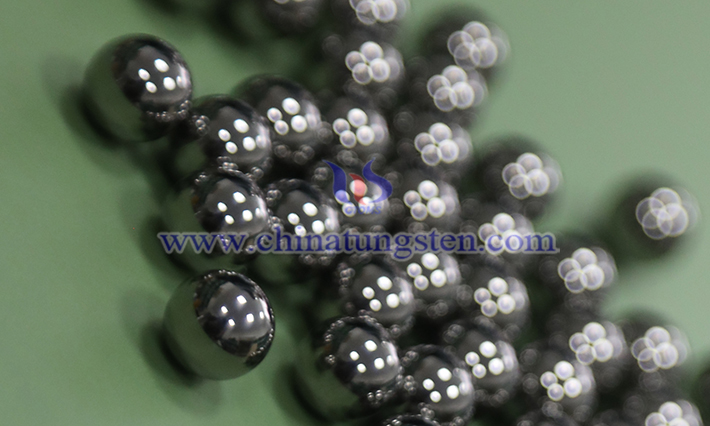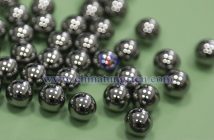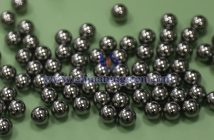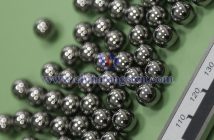Tungsten carbide balls play a critical role in precision mold manufacturing, with their unique physical and chemical properties making them an ideal choice for high-precision and high-wear applications.
First, tungsten carbide balls exhibit extremely high hardness and wear resistance. Composed mainly of tungsten carbide (WC) and metal binders such as cobalt, they achieve a hardness of HRA 85–92, far surpassing ordinary steel. In precision mold manufacturing, molds endure high-frequency, high-intensity impacts and friction. Tungsten carbide balls, used as key components such as punches, ejector pins, or positioning beads, significantly extend mold lifespan and reduce precision loss due to wear. For example, in stamping molds, tungsten carbide balls used for punching or positioning maintain long-term dimensional stability and surface finish.

Second, tungsten carbide balls offer excellent corrosion resistance and chemical stability. In mold manufacturing, some workpieces are processed in acidic, alkaline, or high-temperature environments, where ordinary materials are prone to corrosion and failure. Tungsten carbide balls resist erosion from various chemical substances, making them suitable for molds used with corrosive materials, such as plastic molds or chemical equipment molds. This ensures reliability and consistency in harsh environments.
Third, the high-precision characteristics of tungsten carbide balls meet the stringent requirements of precision molds. Their manufacturing process achieves micrometer-level accuracy and low surface roughness, making them ideal for positioning and guiding components in molds. For instance, in precision injection molds, tungsten carbide balls serve as guiding or ejector balls, ensuring precise alignment during mold closing and opening, reducing deviations, and improving product quality. Additionally, their excellent thermal stability prevents deformation in high-temperature processing, making them suitable for high-precision hot-forming molds.

Furthermore, tungsten carbide balls possess strong compressive strength and fatigue resistance. In high-load mold applications, such as cold heading or drawing molds, they withstand significant pressure without fracturing, extending mold service life and reducing maintenance costs. Their fatigue resistance also minimizes crack propagation under repeated stress, ensuring mold stability.
Finally, the diverse specifications and customization capabilities of tungsten carbide balls enable their widespread use. Whether for precision positioning in miniature molds or heavy-duty components in large molds, CTIA GROUP can customize sizes and properties to meet varied mold design requirements.



